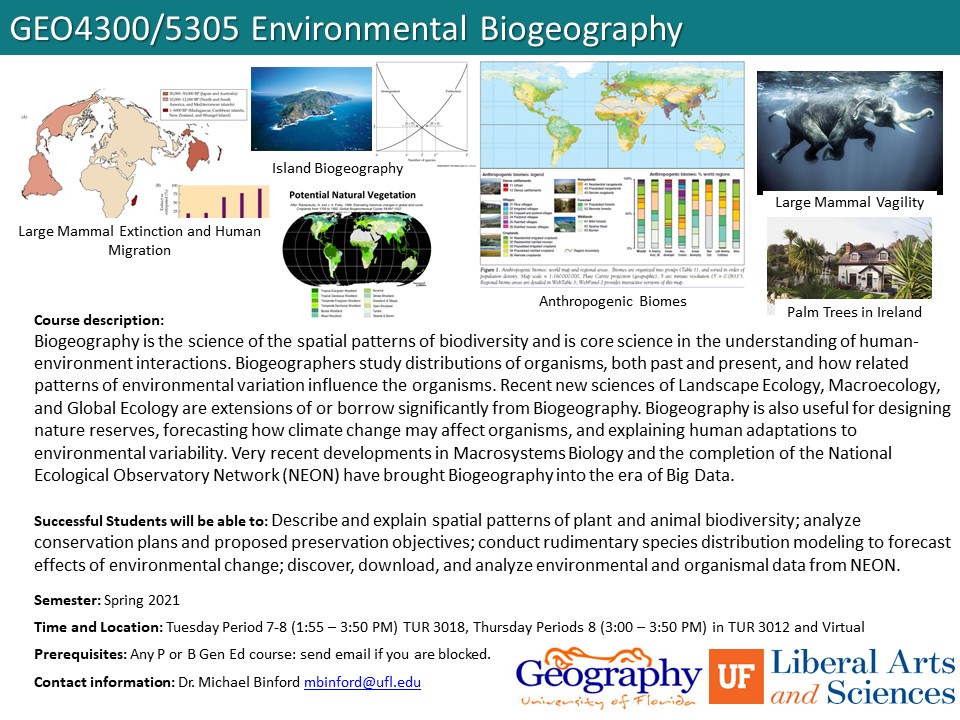 GEO4300 GEO5305 Environmental Biogeography
GEO4300 GEO5305 Environmental Biogeography
Course description:
Biogeography is the science of the spatial patterns of biodiversity and is core science in the understanding of human-environment interactions. Biogeographers study distributions of organisms, both past and present, and how related patterns of environmental variation influence the organisms. Recent new sciences of Landscape Ecology, Macroecology, and Global Ecology are extensions of or borrow significantly from Biogeography. Biogeography is also useful for designing nature reserves, forecasting how climate change may affect organisms, and explaining human adaptations to environmental variability. Very recent developments in Macrosystems Biology and the completion of the National Ecological Observatory Network (NEON) have brought Biogeography into the era of Big Data.
Successful Students will be able to: Describe and explain spatial patterns of plant and animal biodiversity; analyze conservation plans and proposed preservation objectives; conduct rudimentary species distribution modeling to forecast effects of environmental change; discover, download, and analyze environmental and organismal data from NEON.
Semester: Spring 2021
Time and Location: Tuesday Period 7-8 (1:55 – 3:50 PM) TUR 3018, Thursday Periods 8 (3:00 – 3:50 PM) in TUR 3012 and Virtual
Prerequisites: Any P or B Gen Ed course: send email if you are blocked.
Contact information: Dr. Michael Binford mbinford@ufl.edu